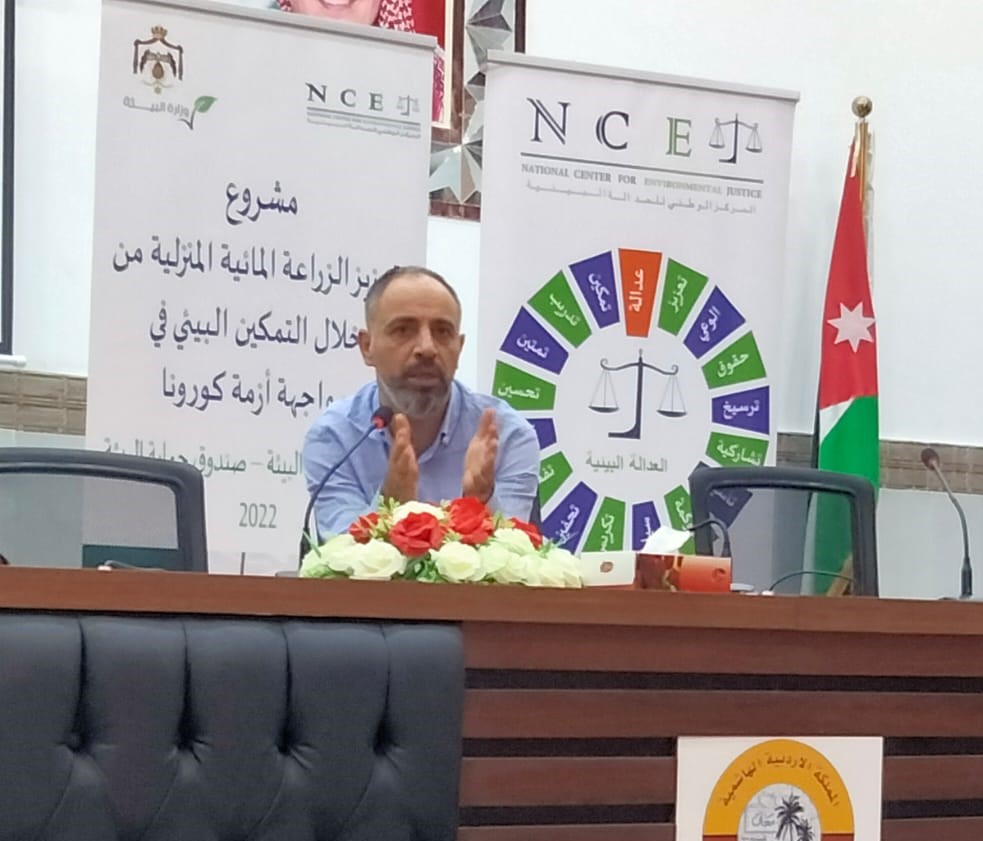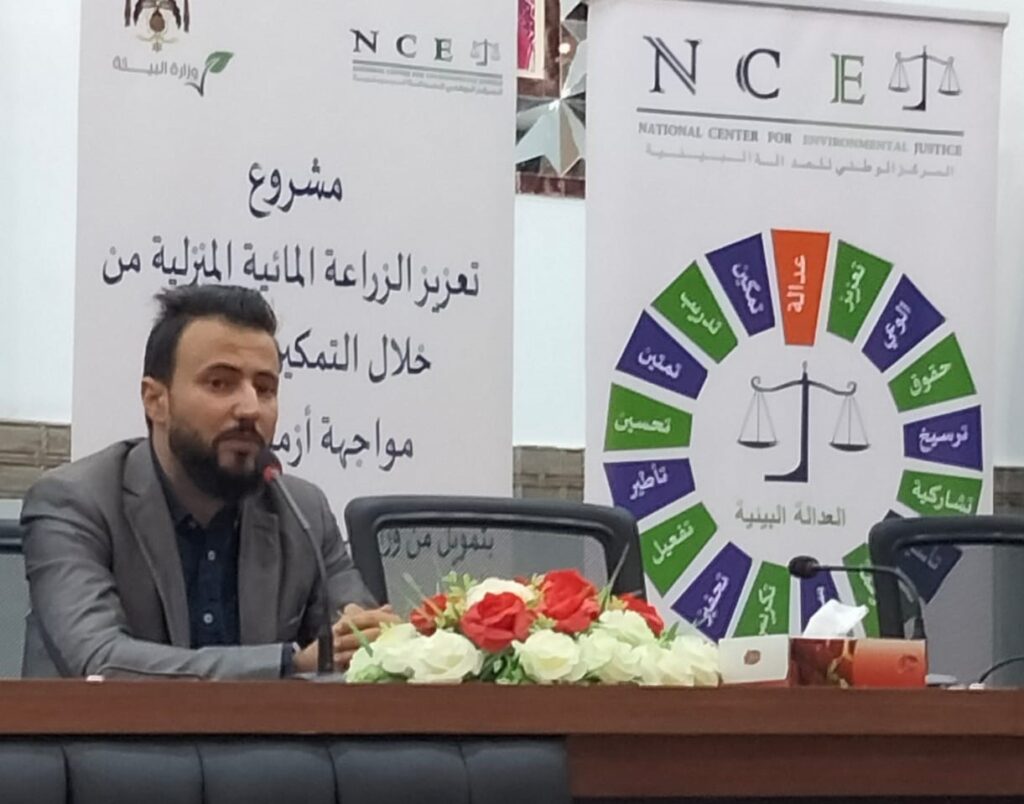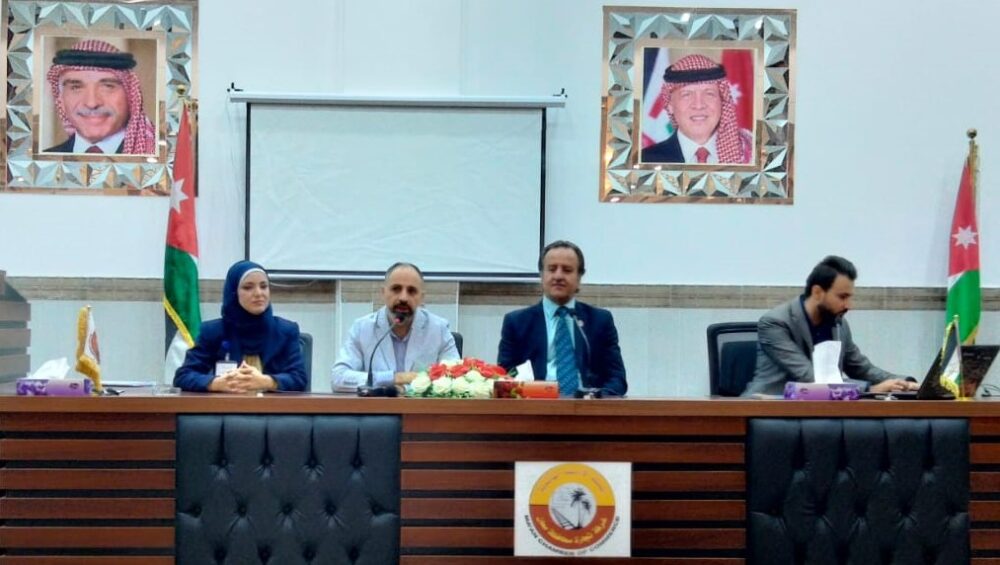Launching the second stage of the project “Promoting home Aquaponics through environmental empowerment in the face of the COVID 19 crisis” at the Chamber of Commerce building in Ma’an Governorate
On behalf of the Minister of Environment, Dr. Ahmed Obeidat, Director of the Directorate of Communication and Environmental Awareness, launched the second stage of the project “Promoting home Aquaponics through environmental empowerment in the face of the COVID 19 crisis” at the Chamber of Commerce building in Ma’an Governorate, which is implemented by the National Center for Environmental Justice (NCEJ), and in the presence of Mr. Uday Shoman, Director of the Environmental Protection Fund, Mr. Saddam Khawaldeh, Head of the Sustainable Land Management Department/Ministry of Environment, and from Ma’an Governorate, attended the Director of the Environment Directorate, Eng. Muhammad Al-Hroub, and Eng. Ibrahim Al-Nawasra, Assistant Director of Ma’an Agriculture.
Ministry of Environment
Dr. Ahmed Obeidat stressed the ministry’s role in supporting civil society organizations active in the field of environmental rights and enhancing their role in communicating with local communities to bridge poverty and unemployment gaps as one of the most important means of the ministry and the Environmental Protection Fund that work with a participatory institution towards achieving the greater environmental goal, through the implementation of applied projects On the ground serving local communities, especially the marginalized, related to food security and sustainability.

The National Center for Environmental Justice
Dr. Muhammad Eyadat, Chairman of the National Center for Environmental Justice, praised the importance of this project in order to achieve food security for the groups most affected by the prevailing conditions and the extended negative effects of the Corona crisis and its impact on the economy and job opportunities available to young people and the challenges that have become part of the nature of their day.
Eyadat added that the importance of training and empowering young people, especially those with needs, who have the ability to deal with technology and use it to increase their family income and exploit small areas that do not need a large water abundance, whether through modern hydroponics units and environmental marketing, which will reflect on increasing their income.
Dr. Eyadat also explained the vision of the National Center for Environmental Justice in promoting such projects, which in turn reflect the goal of environmental justice.
Dr. Nada Hamdan, Head of the Environmental Training and Development Department at the National Center for Environmental Justice (NCEJ), explained a summary of the most important intersections between agriculture and the environment and what are the advantages of the shift towards sustainable agriculture and its impact on environmental rights, the impact of human behavior on increasing the effectiveness of sustainable production, and the extent of its impact on farmers’ income By adopting environmentally friendly behaviors that have a tangible impact.

The Project Excution
Speaking about the importance of the project from the practicale point of view, Mr. Mahmoud Naser, Manager of Al Rajeh Company for Sustainability and Development, the company executing the project, explained the importance of moving towards the use of technology in agriculture in order to reduce the gap between market needs and available agricultural products.
Naser also explained the stages of project implementation and the exploitation of small spaces for homes and lands and their adaptation to be a stable source of income for families, and what are the opportunities for young people from the governorates to exploit environmental marketing in marketing high-quality agricultural products, and their role in building environmental and sustainable projects instead of searching for jobs.
Noting that the actual implementation of the construction of agricultural units will start in the next few days.






